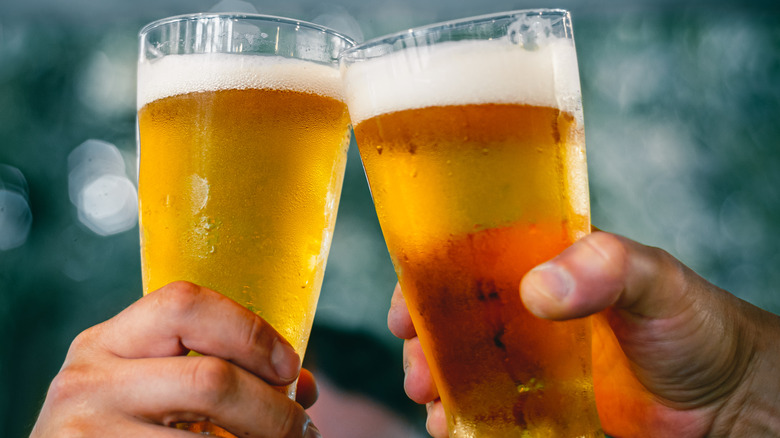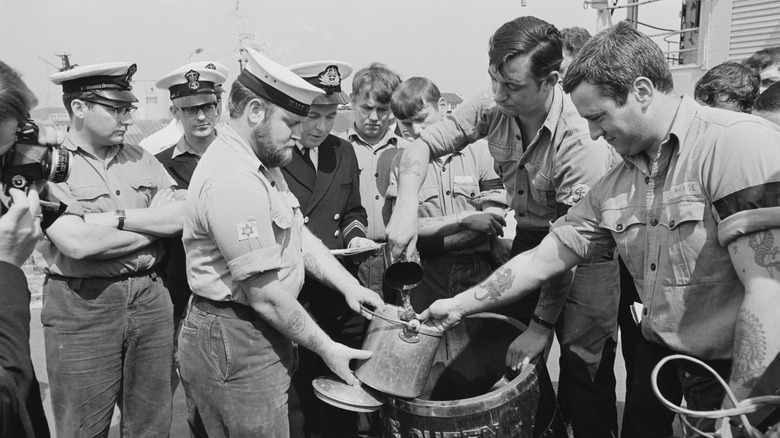The US Once Created A Beer Shortage To Boost The Bread Supply
Beer and bread are two foods that might not always seem like a natural pair to many, but bakers and brewers actually have a lot in common. Both use fermented mashed grains to create their final product. Just like adding rye or wheat flour changes the flavor of bread, brewers also add adjunct grains to their mash in order to change the taste of their products.
In fact, while common wisdom might think humans first settled in one place and domesticated wild grains to create bread, there are some who claim that brewing beer was the motivation for what would result in the creation of modern civilization. Yeast allows the human body to absorb much more of the nutritional content from the most common grains, and by ingesting either bread or fermented bread, early human civilizations would have had a nutritional leg up on their contemporaries.
Thanks to modern understandings of nutrition, we know that it's pretty hard to find a "healthy" beer, but at the time, both beer and bread might have been among the most plentiful sources of dense calories and nutrients. This connection became relevant once again in more recent history when the U.S. found itself on the verge of war.
Bread over beer
In 1917, the United States officially entered into the conflict that would become known as World War I. The country suddenly had a military halfway around the world that needed its support, and it was decided that alcohol production may be a threat to this need.
Firstly, this is due to the fact that bread and beer have many of the same ingredients. Beer, however, was seen by the growing temperance movement as something that damaged families and society as a whole. The Food and Fuel Control Act was passed in August 1917 to counter these concerns. This act outlawed the use of any grains or foodstuffs to create distilled spirits. For many people, the primary motivating factor behind this legislation was that more grains would be available for bread and food production, and it would limit the need for rationing.
These movements toward temperance eventually paved the way for the total prohibition of alcohol, which passed via constitutional amendment in 1920. Although the 18th amendment wasn't exactly successful (prohibition only lasted 13 years before it was repealed), the United States was far from the only World War I nation to take part in such efforts. In fact, the Russian government also shut down vodka manufacturing and sales around the same time. Similarly, Brits also imposed a ban on paying for other people's drinks and increased taxes on liquor sales.
Not everyone went dry
In the United States, many Americans gave up their favorite beers so that soldiers on the battlefield could enjoy the relative luxury of bread. Rather ironically, the same could not be said for many of those soldiers. The American forces were supposedly "dry" during their time at war, but it seems they would often take advantage of any opportunities to sample the local fare.
Upon the discovery of good German beer that was left behind by fleeing Germans, the soldiers would often help themselves to celebrate. The British Navy was also well known for its rum rations. The practice of allowing sailors an allowance of rum dates back to the 17th century, and it carried on well into the first World War. Soldiers could count on receiving about one-quarter of a pint's worth of rum three times a week. These allowances were often issued under the supervision of an officer.
French soldiers were also issued a wine ration. What started as about a half-liter of wine per day actually increased as the war dragged on. Each soldier was allowed three-quarters of a liter by 1916 to help keep up morale.


